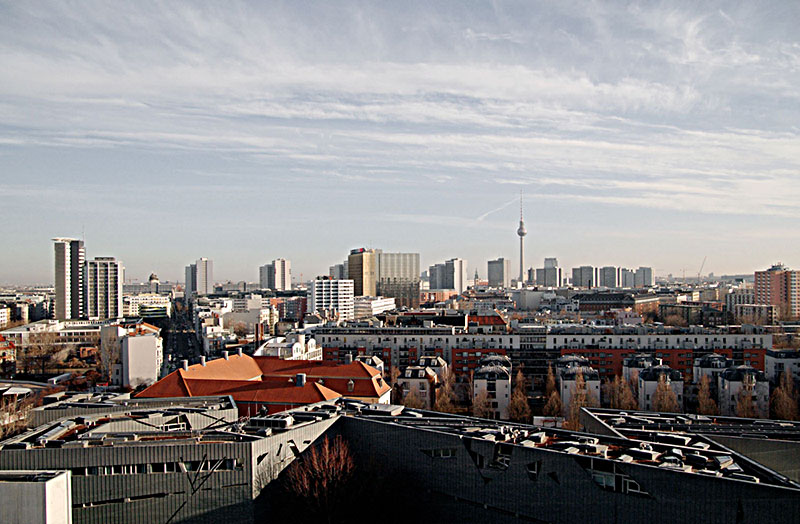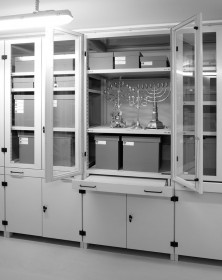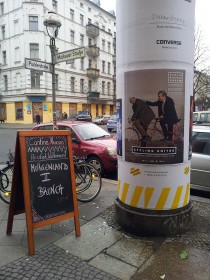More and more young Israelis are moving to Berlin, bustling between Berghain and meshuggah parties, Neukölln and Prenzlauer Berg. The media can’t stop talking about them, but the vogue isn’t only due to the 50-years of diplomatic ties between Germany and Israel. There are in fact not a few young people moving to the German capital with innovative ideas and youthful brio, dabbling in the start-up or art scenes, running cafes, organizing parties.

Berlin’s skyline with a view of the Jewish Museum © Michele Nastasi
So what does that life really look like?
Last year I met Noga at a Berlin gallery and we quickly started talking about family, Berlin, and Israel. In September of 2010, Noga and her husband Zeevi moved to Berlin with just two suitcases – not to enjoy the party scene here for awhile, but to stay. I met with both of them to talk about their life in Berlin.
Jihan Radjai: Why did you decide to move to Berlin? → continue reading

View of Jewish Musem-Berlin storage,© Jewish Museum Berlin, photo: Jens Ziehe
It’s cold. The neon light casts a harsh glare. A gray cabinet stands next to another along white walls. The room feels sterile. The air conditioning hums. A gloomy place.
I put on blue, latex gloves, open one of the cabinets and take out a gray carton. Contours of an item shimmer from under layers of tissue paper. Carefully, I take the object out of the carton and free it from the paper; a microcosm of history presents itself, as if this gloomy place accentuates the aura of the item, the room itself taking a whole step back. → continue reading
Pessach is approaching – the festival of exodus and freedom. This year, there is less talk of having the festive meal at large community gatherings. It is obvious, although unspoken, that smaller gatherings in the home make more sense. We are becoming alienated from our community centers through fear. Keep a low profile. Don’t speak Hebrew on the streets. Some people are removing the mezuzah from their front doorposts, a traditional object that visibly identifies a Jewish household. There is a mood of caution and nervous apprehension.
How did it get to this point?

Advertisement with Imam Ferid Heider and Rabbi Daniel Alter for the “Cycling Unites”-Critical-Mass-Tour in Berlin on 22 March 2015, photo: Michal Friedlander
June, 2014
A drunken man rolls slowly off the train platform and plops onto the tracks at Friedrichstrasse station. Around sixty people witness the moment and look away, hoping that someone else will solve the stinky, awkward problem. And so it was. An Italian and an Israeli jumped down to haul the semi-conscious man to safety. The passengers walked around the startled little group, pressing forward to make the oncoming train.
July 2014
Dinner party small talk. The discussions nearest me are taking a more political turn and I am just not in the mood to talk about Israel. Too late. The young man next to me asks if I saw the recent pro-Palestinian demonstration on the Kurfürstendamm? He becomes very still and lowers his voice. → continue reading


